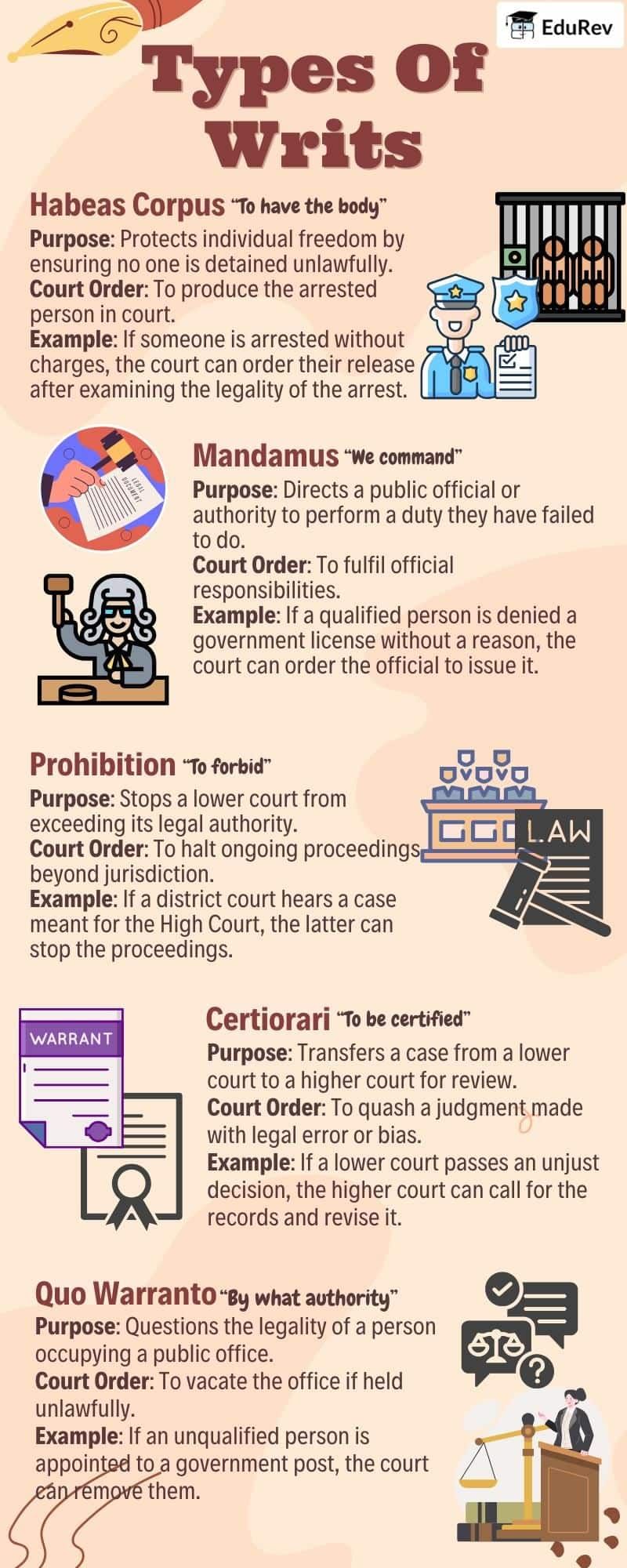Humanities/Arts Exam > Humanities/Arts Notes > Political Science Class 11 > Infographic: Rights in the Indian Constitution
Infographic: Rights in the Indian Constitution | Political Science Class 11 - Humanities/Arts PDF Download

The document Infographic: Rights in the Indian Constitution | Political Science Class 11 - Humanities/Arts is a part of the Humanities/Arts Course Political Science Class 11.
All you need of Humanities/Arts at this link: Humanities/Arts
|
43 videos|268 docs|39 tests
|
FAQs on Infographic: Rights in the Indian Constitution - Political Science Class 11 - Humanities/Arts
| 1. What are the fundamental rights guaranteed by the Indian Constitution? |  |
Ans. The Indian Constitution provides several fundamental rights that are essential for the development of individuals and the promotion of equality. These include the right to equality, the right to freedom, the right against exploitation, the right to freedom of religion, cultural and educational rights, and the right to constitutional remedies. Each of these rights aims to protect the personal liberties of citizens and uphold the dignity of the individual.
| 2. How do fundamental rights differ from directive principles in the Indian Constitution? |  |
Ans. Fundamental rights are justiciable, meaning they can be enforced in a court of law, while directive principles are non-justiciable, serving as guidelines for the state in governance. Fundamental rights primarily focus on individual liberties and protection against state action, whereas directive principles aim to ensure social and economic justice. Both are essential for the overall framework of governance and the establishment of a welfare state.
| 3. What is the significance of Article 21 in the context of fundamental rights? |  |
Ans. Article 21 of the Indian Constitution guarantees the right to life and personal liberty. This article has been interpreted by the Supreme Court to include various rights such as the right to privacy, the right to a clean environment, and the right to education. It underscores the importance of preserving the dignity and freedom of individuals, making it one of the most significant provisions regarding fundamental rights.
| 4. Can fundamental rights be suspended, and under what circumstances? |  |
Ans. Yes, fundamental rights can be suspended during a state of emergency as declared under the Constitution. Article 352 allows for this suspension when the security of India or any part of it is threatened. However, certain rights, such as the right to life and personal liberty under Article 21, cannot be suspended, ensuring that even in times of emergency, some fundamental protections remain intact.
| 5. How has the interpretation of fundamental rights evolved through judicial activism in India? |  |
Ans. The interpretation of fundamental rights in India has evolved significantly due to judicial activism. The Supreme Court has expanded the scope of these rights through various landmark judgments, ensuring that the Constitution adapts to changing societal needs. This includes recognizing new rights under Article 21 and enhancing the protection of minority rights. Judicial activism has played a crucial role in safeguarding individual rights against arbitrary state actions.
Related Searches















